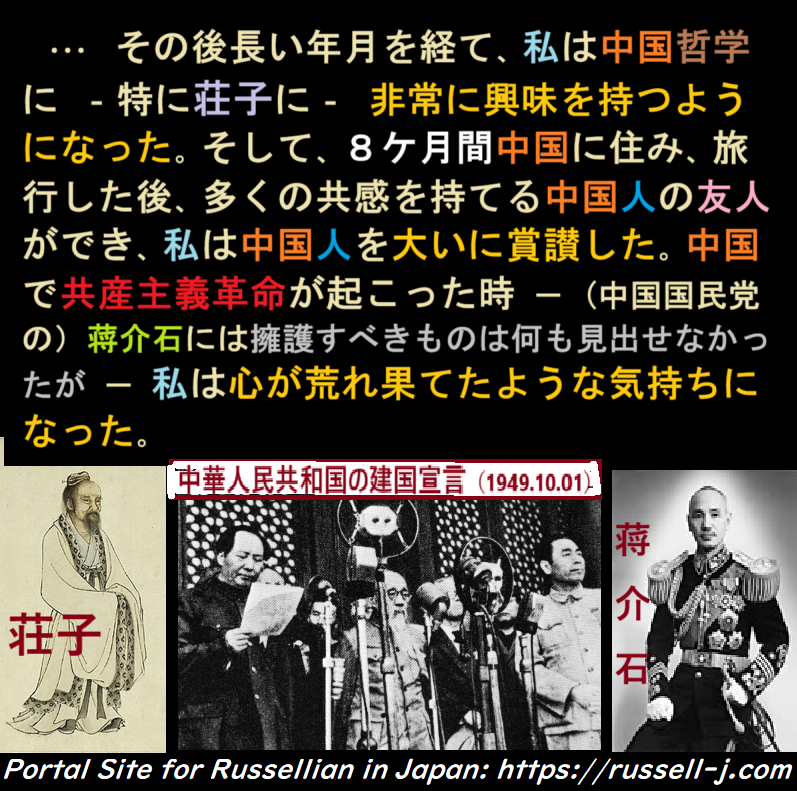
・・・その後長い年月を経て、私は中国哲学に - 特に荘子に‐ 非常に興味を持つようになった。そして、8ケ月間中国に住み、旅行した後、多くの共感を持てる中国人の友人ができ、私は中国人を大いに賞讃した。中国で共産主義革命が起こった時 - (中国国民党の)蒋介石には擁護すべきものは何も見出せなかったが - 私は心が荒れ果てたような気持ちになった。
..., many years later, I became much interested in Chinese philosophy, especially in Chuang-tse, and after living and travelling in China for eight months I felt that I had many sympathetic Chinese friends and I greatly admired the Chinese. When the Communist Revolution took place in China, I felt desolated, though I saw nothing good to uphold in Chiang Kai-shek.
Source: Bertrand Russell: Common Sense and Nuclear Warfare, 1959, pp. 41-42.
More info.: https://russell-j.com/cool/60T_3FUNSO-01.HTM
<寸言>
ラッセルは、1920年10月、ドーラ・ブラック(注:帰国後に結婚)とともに、中国を訪れ、約8カ月間、北京大学を拠点にし、中国全土を訪れ、講演活動を行いました。ラッセルが訪れた当時の中国は、共産主義革命が起こる前の、いわば「古き良き中国」ですが、異国気分にひたって、存分に中国を楽しむことができました。
これに対し、帰国途上に約2週間立ち寄った日本では、興味深くはあっても不快な経験を多数しました。
荘子(Chuang-tse/Chuang-tzu)は中国戦国時代の思想家で、『荘子』の著者として知られています。なお、牧野力氏は「老子」と誤訳しています。
In October 1920, Russell, accompanied by Dora Black (note: they married after returning home), visited China. For about eight months, he was based at Peking University, traveling throughout the country and giving lectures. At the time of Russell's visit, China was still the "good old China" before the Communist Revolution, and he was able to immerse himself in the exotic atmosphere and fully enjoy his experience in the country.
In contrast, during his approximately two-week stopover in Japan on his way back home, although he found certain aspects interesting, he had many unpleasant experiences.
Chuang-tse (also spelled Chuang-tzu) was a thinker from the Warring States period in China and is known as the author of Zhuangzi. Incidentally, Mr. Tsutomu Makino has mistranslated it as "Laozi."
* Amazon Gift Card
